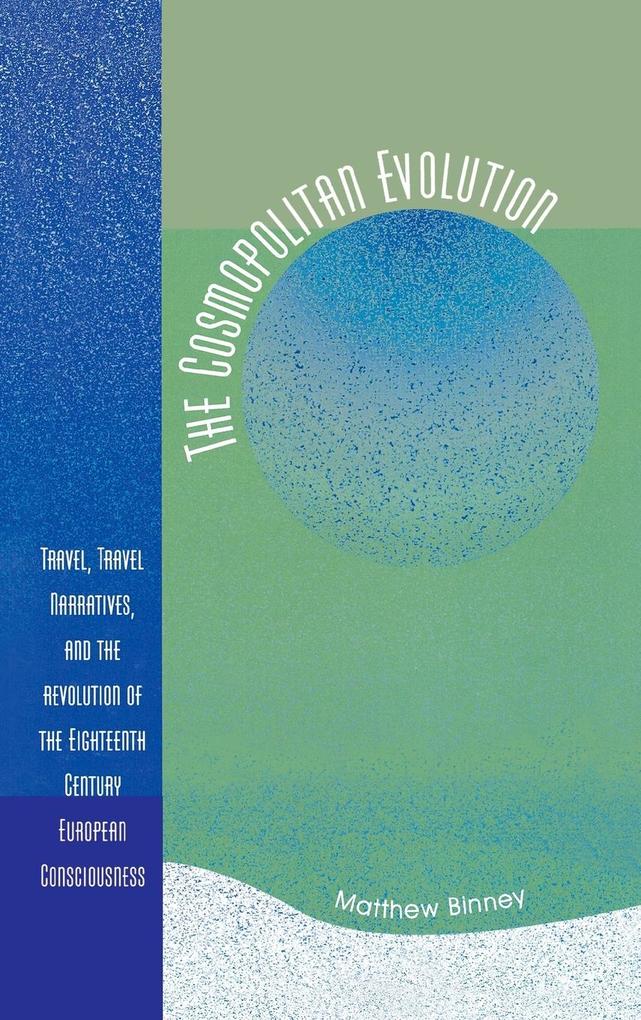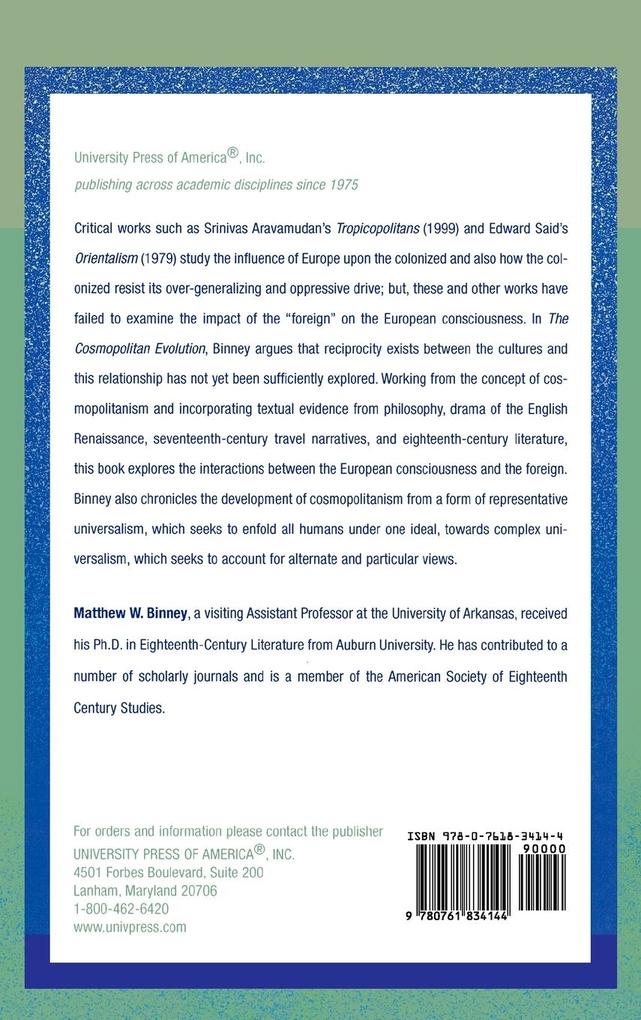Working from the concept of cosmopolitanism and incorporating textual evidence from philosophy, drama of the English Renaissance, seventeenth-century travel narratives, and eighteenth-century literature, The Cosmopolitan Evolution, explores the interactions between the European consciousness and the foreign. The book also chronicles the development of cosmopolitanism from a form of representative universalism, which seeks to enfold all humans under on ideal, towards complex universalism, which seeks to account for alternate and particular views.
Inhaltsverzeichnis
Chapter 1 Preface
Chapter 2 Introduction
Chapter 3 Chapter 1. The Classical and Medieval Mind: The Predominance of Universalism without Complexity
Chapter 4 Excursus I. Systems Theory, Consciousness, and Virtue
Chapter 5 Chapter 2. The Renaissance Consciousness: The Development of Internal Complexity Through Boundaries and Self-Reference
Chapter 6 Chapter 3. English Renaissance Drama and Self-Reference
Chapter 7 Chapter 4. Seventeenth-Century Travel Narratives: Universalism and the Travel Consciousness
Chapter 8 Chapter 5. Seventeenth-Century Travel Narratives: National Interests and Self-Reflection
Chapter 9 Excursus II. Oroonoko, Self-Reference, and the Internalization of the Foreign
Chapter 10 Chapter 6. The Eighteenth-Century Consciousness and the Ascendancy of Cosmopolitan Particularism: Self-Regulation and Self-Governance
Chapter 11 Chapter 7. The Eighteenth-Century Consciousness and Complex Universalism: Daniel Defoe, Self-Governance, and Sympathy
Chapter 12 Conclusion
Chapter 13 Notes
Chapter 14 Bibliography
Chapter 15 Index











